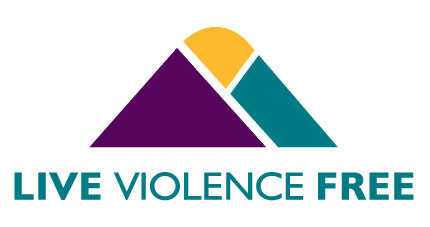CHILD ABUSE
Child abuse is when a parent or caregiver, whether through action or failing to act, causes injury, death, emotional harm or risk of serious harm to a child.
Child Abuse: Physical Abuse
Physical abuse may include: striking, kicking, burning, biting, hair pulling, choking, throwing, shoving, whipping or any other action that injures a child. Even if the caregiver didn’t mean to cause injury, when the child is injured it is abuse.
Child Abuse: Sexual Abuse
Sexual abuse of children may include: non-contact abuse including making a child view a sex act, making a child view or show sex organs, and inappropriate sexual talk; contact abuse including fondling and oral sex, penetration, and making children perform a sex act; or commercial sexual exploitation of children including child pornography.
Child Abuse: Emotional Abuse
Emotional abuse may include: rejecting/ignoring the child, telling them they are unwanted/unloved, showing little interest, not initiating/returning affection, not listening to them, not validating their feelings, breaking promises, cutting them off in conversation, shaming/humiliating, terrorizing with threats, setting up for failure, manipulating, taking advantage of their weakness/reliance on adults, slandering, screaming, yelling, isolating them, confining to a small area, forbidding play, or corrupting them by encouraging criminal acts, lying to justify actions, and encouraging misbehavior.
Child Abuse: Neglect
This form of abuse is when a parent or caregiver does not give the care, supervision, affection and support needed for a child’s health, safety and well-being.
signs of abuse
Child Physical Abuse
- Any injury to a child who is not crawling yet
- Visible and severe injuries
- Injuries at different stages of healing
- Unexplained injuries or explained in a way that doesn’t make sense
- Wears long sleeves out of season
- Aggression toward peers, pets, other animals
- Violent themes in fantasy, art, etc.
- Seems afraid of parents or other adults
- Fear, withdrawal, depression, anxiety
- Nightmares, insomnia
- Immaturity, acting out, emotional and behavior extremes
- Self-destructive behavior or attitudes
- Report injuries or severe discipline
Child Sexual Abuse
- Difficulty sitting, walking, or bowel problems
- Bleeding, bruises, pain, swelling, itching of genital area
- Frequent urinary tract infections or yeast infections
- Any sexually transmitted disease or related symptoms
- Doesn’t want to change clothes (i.e., for P.E.)
- Withdrawn, depressed, anxious
- Eating disorders, preoccupation with body
- Aggression, delinquency, poor peer relationships
- Poor self-image, poor self-care, lack of confidence
- Sudden absenteeism, decline in school performance
- Substance abuse, running away, recklessness, suicide attempts
- Sleep disturbance, fear of bedtime, nightmares, bed wetting
- Sexual acting out, excessive masturbation
- Sexual behavior or knowledge that is advanced or unusual
- Reports sexual abuse
Child Emotional Abuse
- Developmental delays
- Wetting the bed or pants
- Speech disorders
- Health problems like ulcers or skin disorders
- Obesity and weight fluctuation
- Habits like sucking, biting, rocking
- Overly compliant or defensive
- Extreme emotions like aggression or withdrawal
- Anxieties, phobias, or sleep disorders
- Destructive or anti-social behaviors
- Behavior that is inappropriate for age (too adult or too infantile)
- Suicidal thoughts and behaviors
Child Neglect
- Clothing that is the wrong size, in disrepair, dirty, or not right for the weather
- Often hungry, stockpiles food, seeks food, and may even show signs of malnutrition
- Very low body weight & height for age
- Often tired, sleepy, listless
- Hygiene problems; body odor
- Talks about caring for younger siblings and not having a caregiver at home
- Untreated medical and dental problems, incomplete immunizations
- Truant, frequently incomplete homework, frequently changes schools
HOW TO TALK WITH A POTENTIAL VICTIM OF CHILD ABUSE
When someone listens to and believes a survivor, it can make a world of difference for them. Taking a survivor-centered approach empowers survivors by prioritizing their needs and wants.
T = Thank them for telling you
A = Ask how you can help
L = Listen without judgment
K = Keep supporting
Never Victim Blame
Abuse is never the victim’s fault. Believe, support, and trust survivors. Place the responsibility on abusers and perpetrators to end the abuse. Trust their perspective. Listen! Ask survivors what they need to individually be safe.
DO
- Talk in private but not behind closed doors
- Sit with them at eye level
- Use language they understand
- Control emotional response and remain calm
- Tell them that asking for help is a good thing
- Provide love, support & emotional security
- Tell them they can have their own feelings
- Remind them they deserve independence
- Be mindful of your language and purpose
- Inform them of who you will tell and why (i.e., CPS, police)
DON’T
- Don’t use leading questions
- Don’t show shock, disgust or anger at abuser
- Don’t try to rescue the victim
- Don’t say you understand when you don’t
- Don’t become too emotionally involved
- Don’t give advice or demand action
- Don’t take criticism personally
- Don’t reinforce self blame
- Don’t touch them without consent
Related stories
Share this Content
#ONECONVERSATION
champion
